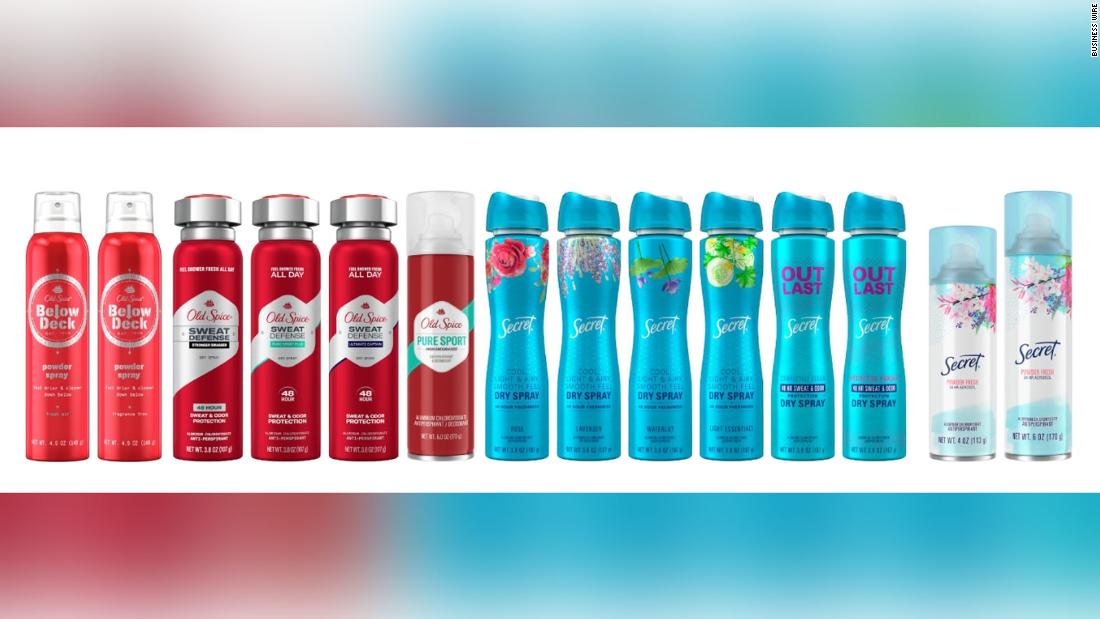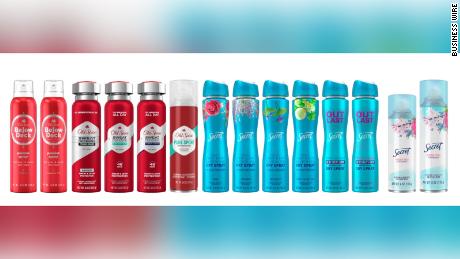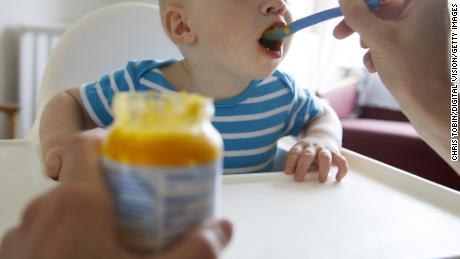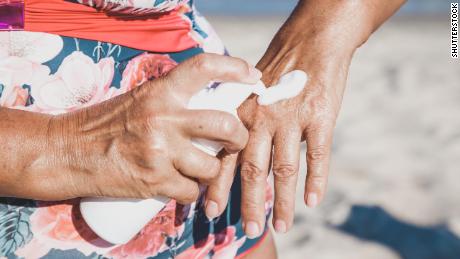Additional batches of antiperspirants and deodorants, which Valisure said tested at levels up to 2 parts per million, include products made by Summer’s Eve, Right Guard, Power Stick, Soft & Dri and Victoria’s Secret. To date, CNN was not able to verify that any of these products except Old Spice and Secret have been recalled following Valisure’s early November request to that effect to the FDA.
CNN reached out to all of these companies for response. The Village Company, which makes Soft&Dri, declined to provide a comment. Unilever, which makes Suave, told CNN in an email: “Unilever takes all safety concerns seriously, and we are conducting a robust investigation into the Valisure petition’s assertions about two Suave antiperspirant aerosols.”
“Benzene is not an intentionally added ingredient in body spray products; however, the U.S. Food and Drug Administration (FDA), as well as product manufacturers, are aware that it may be present in food and drug products at very low levels,” PCPC wrote.
“PCPC and its member companies are firmly committed to ensuring consumers have access to cosmetics and personal care products with ingredients that have been thoroughly tested for safety and follow the requirements of the law,” the statement said. “Companies and individuals have a legal responsibility to ensure their products and ingredients are safe for the intended use.”
High levels of benzene detected
In its recall, P&G said it has had no reports of adverse reactions, adding that “daily exposure to benzene in the recalled products at the levels detected in our testing would not be expected to cause adverse health consequences.”
Tests by Valisure, however, found concerning levels of benzene in some batches of P&G products. The most highly contaminated — two lots of an Old Spice antiperspirant called Pure Sport (Lots 11671458SQ and 11671458SB; UPC 012044001912) — contained 17.7 and 17.4 average parts per million of benzene, said Valisure CEO David Light.
“That’s nearly nine times the upper limit of 2 parts per million the FDA has set for emergency use,” Light said.
Secret Powder Fresh, 24 HR Aerosol (Lots 11721458SG and 11701458SH; UPC 037000711087) had about 16 average parts per million, tests showed.
“With aerosols, you might be using it every day, probably in a closed space like a bathroom,” Light said.
The company tested the product with the highest levels of benzene (Old Spice Pure Sport with 17.7 ppm) in a closed bathroom, spraying once under each arm as a consumer would. By doing so, you “could bring the entire bathroom air to 15 times the limit for what the EPA has said is an increased risk for leukemia,” Light said.
How does the product become contaminated?
In overall testing, levels of benzene varied greatly from batch to batch, even within a single brand, Valisure noted, while initial analysis of at least one sample of 49 lots of body sprays from 19 different brands showed no benzene at all.
None of the products have benzene as an ingredient, experts say, so the only way the chemical could have been introduced is via an error in the manufacturing process — or by the way the chemical is delivered to the body.
Valisure said one possibility is that benzene could come from ingredients such as hydrofluorocarbon 152a, butane, isobutane, propane and alcohol used to propel sprays onto the skin.
“Our investigation showed that traces of benzene came from the propellant that sprays the product out of the can,” said Kate DiCarlo, senior director of communications for the Personal Care Portfolio of P&G.
“Due to the highly specialized nature of aerosol products, we use a manufacturing partner to produce these products,” Dicarlo continued. “That manufacturing partner identified an issue with their propellant supply and is implementing additional measures to address the issue identified in the investigation.
“Once the recall is complete, we are preparing to ship new product that meets our quality standards to re-stock shelves.”
Other products with benzene
Is avoiding the propellants in spray products the answer to reducing risk? Possibly, experts say. However, Valisure also found higher levels of benzene in non-aerosol body odor products, including powders and sticks, Light said.
“I think there’s good evidence that propellants are a significant source of this contamination but there’s a variety of potential sources in the raw materials used to create the products as well,” Light said.
“Impurities may be present in the manufacturing environment due to the use of certain chemicals, equipment or containers. We need more testing,” said David Andrews, a senior scientist for the Environmental Working Group (EWG), a non-profit environmental and consumer health advocacy group.
“We need independent analysis as part of the overall supply chain. It’s really critically important to find these problems before they get on the shelves,” Light added.
In response to Valisure’s petition on sunscreens, the FDA told CNN that it “evaluates and assesses the information provided in citizen petitions of this type and, generally, initiates an independent testing and verification process.”






